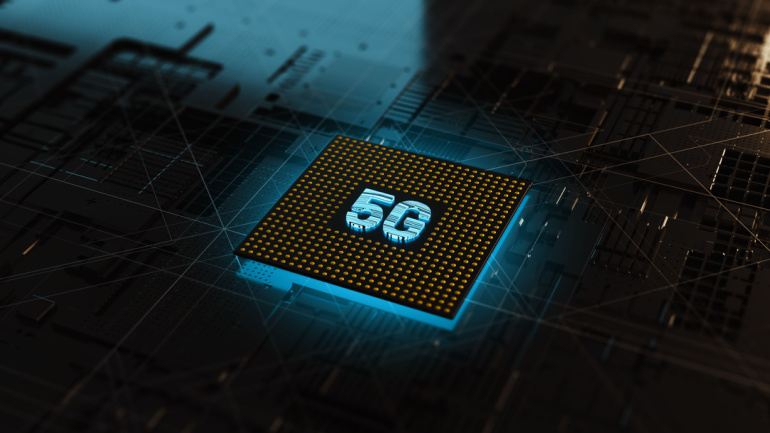Kyocera, a prominent player in the telecom sector, is making waves by divesting a part of its KDDI stake to strengthen financial dynamics. This strategic move is key for VoIP advancements, as Kyocera enhances its focus on core telecom offerings.
Viavi Solutions is advancing the VoIP industry with a new Open RAN test lab in Quezon City, funded by USAID’s BEACON Project. This initiative boosts regional Open RAN markets, fostering VoIP innovation.
Samsung Electronics today announced that the company has been selected by KDDI as a main vendor to provide 4G and 5G O-RAN compliant virtualized Radio Access Network (vRAN) solutions for their Open RAN deployment in Japan. In line with KDDI’s vision to adopt leading-edge network technology, the companies will expand the reach of Open RAN in the coming years. Starting from 2025, KDDI will expand its Open RAN deployment leveraging the advantages of a fully disaggregated and software-based architecture powered by Samsung vRAN. KDDI’s Open RAN network will feature enhanced capabilities for improved energy efficiency, optimized performance and intelligent automation. “KDDI has been focused on identifying and preparing for next-generation networks, and we have been conducting numerous technical verification and feasibility studies on Open RAN with industry-leading companies like Samsung,” said Kazuyuki Yoshimura, Chief Technology Officer of KDDI. “Today’s announcement represents KDDI’s dedication to bringing innovative technologies to Japan. We are proud to deliver a cutting-edge and reliable radio access…
Huawei is nearing completion of a large R&D complex in Shanghai focused on semiconductor technology. Fujitsu, NEC, NTT, and DoCoMo have unveiled a groundbreaking ‘top-level sub-terahertz 6G device’ achieving 100 Gbps speeds over 100-meter distances in the 100 GHz and 300 GHz bands. MASV’s Solutions Partner Program simplifies large file transfers using their cloud-based platform. LEAP is expanding global customer outreach with Vonage’s Communications APIs and SIP Trunking for scalable cloud connectivity.
Nvidia is setting its sights on a more significant role within the mobile networking sphere, particularly in the emerging field of 6G technology. At its annual GTC AI event, the company unveiled its ambitious 6G Research Cloud Platform, positioning itself as a key player in the next evolution of mobile technology. This initiative is designed to leverage Nvidia’s expertise in chips and AI, demonstrating its capabilities beyond the realm of 5G.
As the evolution towards 6G continues, telecommunications mammoths NTT DOCOMO and NTT, have expanded their research circle to include SK Telecom and Rohde & Schwarz. The newly inducted collaborators will aid in various 6G trials in Japan, focusing on identifying potent frequency bands for the upcoming technology. Of particular interest is the development of a ‘6G AI-native air interface’, that promises to bolster network performance and energy effectiveness.
In a significant move to strengthen its position in the global semiconductor industry, the Japanese government has committed approximately $307 million in subsidies to a high-profile semiconductor project. This initiative brings together major players NTT from Japan, Intel from the United States, and South Korea’s SK Hynix. Their collaboration focuses on the development of advanced optical semiconductor technology, which promises faster data processing speeds and reduced energy consumption compared to traditional electrical semiconductors.
In a groundbreaking shift, artificial intelligence (AI) is revolutionizing material discovery, unlocking new possibilities in renewable energy, semiconductors, and pharmaceuticals. GlobalData, a prominent data and analytics firm, asserts that AI is spearheading a transformative era in research and development, dismantling traditional barriers and fueling unprecedented advancements in material science.
In a groundbreaking move, AT&T has selected Ericsson as the primary supplier for its Open RAN equipment, set to handle 70% of its wireless traffic by the close of 2026. The five-year agreement, valued at an impressive $14 billion, signals a significant shift in the North American telecommunications landscape. Under the deal, Ericsson will replace some of Nokia’s equipment in specific areas of AT&T’s network.
In an exciting move, Vodafone and Arm have united to innovate within the telecom industry, developing an adaptable platform with Arm-based processors ideal for Open RAN base stations. Their collaborative effort showcases both parties’ commitment in enriching the competitive Open RAN landscape, offering robust computational power for 5G services and improved energy efficiency. In addition, illustrious companies like SynaXG, Ampere Computing, and Fujitsu are lending their expertise to test and validate this technology. The joint venture also presents opportunities for Vodafone to reach its net-zero targets.













